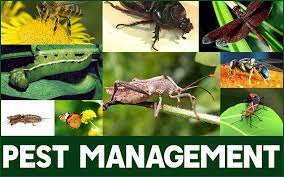Pest management isn’t just a seasonal concern; it’s a year-round responsibility for homeowners, businesses, and agricultural operations alike. Pests can seriously harm property and endanger the health of occupants. Examples of this include rodents taking up residence in buildings and ants infiltrating kitchens. Contacting a pest control company is the best approach to get rid of these pests. But before you go ahead and book pest control services, try out these top 10 pest control tips and tricks to ward off pests and keep your house clean and disease-free.
Understanding Common Pests
It is essential to comprehend the common pests faced year-round before delving into pest management solutions. Every type of pest, including rodents like mice and rats and insects like ants, cockroaches, and spiders, has a distinct habitat preference and way of life. Our ability to effectively control their populations will be enhanced by our increased knowledge of these pests.
Top Pest Control Tips and Tricks
1. Do Not Allow Water to Stand:
Standing water encourages mosquito reproduction. Furthermore, these mosquitoes may carry fatal illnesses like filaria, dengue, and malaria. When the buckets in the kitchen or bathroom are not in use, make sure there is no standing water left in them. Make sure all of the drains are directed outside of your home and keep the utensils dry.
2. Cover The Windows With Nets:
Install nets on the windows of your home. This will prevent several pests from invading your home and transferring diseases, including cockroaches, bees, mosquitoes, and flies. In addition to keeping pests at bay, this step will support adequate ventilation maintenance.
3. Keep The Bathroom Clean:
Keep in mind that your bathroom may serve as a haven for bugs, so be sure to take precautions to keep it safe and sanitary. Maintain the space dry and tidy at all times. Clean the pot every other day. Give your sink two thorough cleanings per week. Last, but not least, confirm that no hair or soap particles are clogging the drain.
4. Throw Away Garbage Regularly:
Get rid of the trash frequently, if at all possible, every day. Having too much trash can result in bug and rat infestations, which can spread illness. Daily trash disposal is essential to preventing damage!
5. Maintain The Area Outside Your Home:
To keep the inside of your home clean, it is crucial to keep the exterior tidy. It’s important to fill in the holes and pots in your garden or lawn to prevent standing water. Regular pruning will help prevent bushy growth in your plants, which could attract pests.
6. Keep The Kitchen Clean:
Keep vegetable peels, spilled food, and other dirt particles off of your kitchen racks, stovetop, and drawers. The kitchen air dry at all times and clean them with disinfectants regularly. This aids in preventing pests from entering the home and kitchen.
7. Dispose of Things You Don’t Need:
Decluttering is one of the best ways to maintain your home germ-free. It is time to discard any out-of-use boxes, clothes, or toys that you may have around the house that your kids have outgrown. They are just lying there, gathering dust and serving as a haven for bacteria.
8 Routine Inspection and Monitoring:
For the early diagnosis of insect infestations, routine inspections are crucial. By routinely checking both indoor and outdoor areas for signs of pest activity, such as nests, gnaw marks, and droppings, property owners can stop infestations from getting worse. Pest populations can be regularly analyzed and the effectiveness of pest control efforts can be tracked over time by installing monitoring instruments like bait stations or pheromone traps.
9. Seasonal Adjustments:
Seasonal changes should taken into consideration while developing pest management plans. Property owners can anticipate pest activity and modify management strategies under their understanding of seasonal pest behavior and life cycles. For instance, termites and ants may swarm the area in the spring in search of food and places to build their nests. Rats may be driven indoors in the winter in search of warmth and cover. Property owners may efficiently manage pest populations all year round by taking proactive measures to meet seasonal pest concerns.
10. Take Professional Service:
Although the tips mentioned above can aid in pest management, termites and other pests might still find their way into your home. So, it is advisable to occasionally seek expert assistance as they are skilled, use approved chemicals, and ensure the security of your house.
Conclusion
A comprehensive pest control strategy that incorporates preventive, monitoring, and treatment methods relevant to pest species and seasonal difficulties is needed to effectively manage pests throughout the year. A pest-free environment can established and maintained all year round by property owners by learning about common pests and putting prevention strategies into practice. Looking into natural cures, doing routine inspections, and staying informed through education and training. By using proactive pest management strategies with diligence and dedication, we may lessen the detrimental effects that pests have on our homes, businesses, and communities. Everyone will live in a safe and healthy environment thanks to this.

